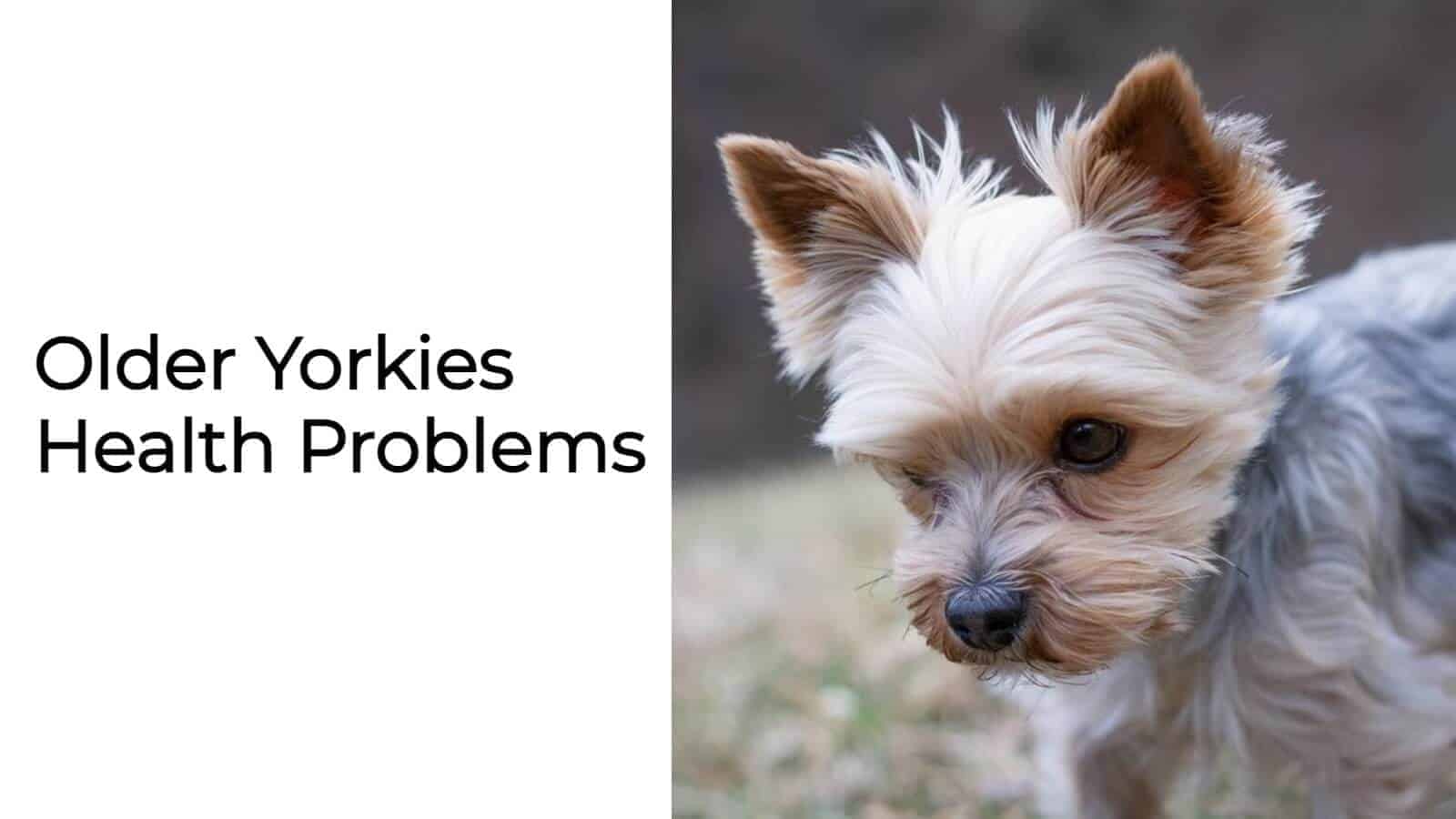As dogs get older, health problems are inevitable. Yorkies can have three types of health problems. Acquired, inherited, or congenital. Some of the vulnerabilities are hereditary, so Yorkies carry abnormalities since they are born. During their life, Yorkies are at high risk of catching diseases, so proper awareness can prevent them. We will cover some of the most common health problems.
Skin Allergies
Yorkies can develop allergy infections when they are exposed to fleas, molds, pollen, or chemicals. They are followed by scratching, excessive itching, or hair loss. These are all indicators of skin allergies.
Some skin allergies can also be deadly for your Yorkie. They are often caused by wasp or bee bites, which are often life-threatening. Regular grooming and bathing can prevent many skin allergies caused by allergens stuck in the coat.
Shunt In Liver
A liver shunt can be one of the health problems in the Yorkies. The liver fails to clean the blood, resulting in death. Blood that is unfiltered causes toxin inflow to the brain, heart, and other vital body parts.
Symptoms are followed by seizures, jaundice, loss of appetite, weakness, severe weight loss, but also vision loss. The liver shunt can be deadly for your Yorkie unless it is treated in an early stage.
Kneecap Dislocation
Kneecap dislocation is a congenital health problem that is very common in the Yorkies. It often results in a kneecap popping out of the knee joint. If your Yorkie makes loud sounds while walking, it is probably due to pain. Yorkie may also limp or even avoid walking.
These symptoms can be indicators of kneecap dislocation. Kneecap Dislocation can be solved by rest or physical therapy. If that does not help, surgical correction can also be a solution.
Teeth Problems
Many small dog breeds have teeth problems as they grow. They are often caused by improper food. If you notice that your dog is not eating as he used to, or even not eating at all, that can be an indicator of teeth problems.
It is recommended that you should check and clean your dog’s teeth at least twice a week in order to prevent this health issue.
Cataracts
Cataracts are a very common older Yorkie health problem. It develops slowly throughout a dog’s life, changing the structure of the protein in the lens of the eye. If you notice white disks behind your dog’s iris, it is probably mature cataracts.
Cataracts can be treated in early form, surgically. Regular checkups and visits to your vet can potentially stop cataracts.
Hypoglycemia
Another health problem that your Yorkie can face is hypoglycemia. Hypoglycemia is defined as a lower level of blood sugar or glucose. Yorkies are at greater risk of developing hypoglycemia in the first six months of their birth.
Older Yorkies can also develop this issue, often resulting from liver disease or when pregnant. Symptoms of hypoglycemia are often weakness, drowsiness, shaking, depression, and seizures. In the young stage, hypoglycemia can affect the brain and the development of motor skills.
For short-term treatment, you can rub honey on the gums or tongue of your dog to help him regain blood sugar. High-protein food can also be helpful in that process.
For a long-term solution, a prescribed diet and thorough medical investigation can be the only way to your Yorkies’ health.

Tracheal Collapse is also one of the older Yorkie health problems
This genetic condition mainly affects Yorkies, Pomeranians, Chihuahuas, and other small dog breeds. Yorkies with tracheal collapse usually experience bouts of respiratory distress.
Humid weather and obesity can all bring out the signs of tracheal collapse. When a dog has a nonproductive cough that is not accompanied by fever, usually is caused by tracheal collapse.
Some of the symptoms related to this health problem are wheezing, difficult breathing, gagging, vomiting, their face turning “blue”, coughing when pressure is applied to their neck or chest.
Symptoms can also occur when the dog is excited, or under physical activity that requires faster air intake. If you notice some of these symptoms, you should definitely visit the vet.
READ ALSO: Yorkies Food Facts: 5 Foods You Should Never Feed a Yorkshire Terrier
The neck should be free so you should not use a dog collar. Instead, a body harness can be the option. Depending on symptoms and how severe they are, some medications can be prescribed.



4 thoughts on “Older Yorkies Health Problems”